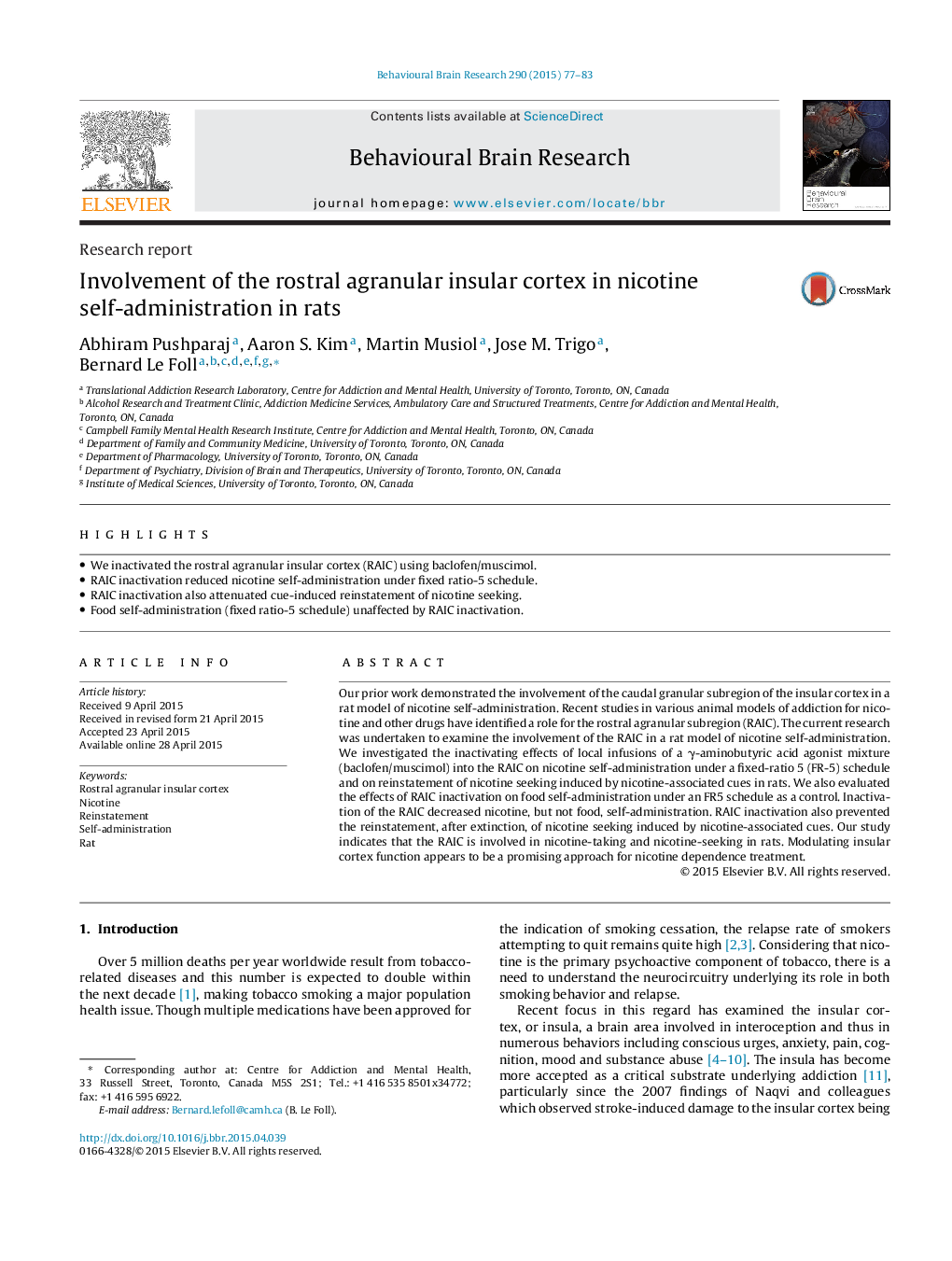| Article ID | Journal | Published Year | Pages | File Type |
|---|---|---|---|---|
| 6256663 | Behavioural Brain Research | 2015 | 7 Pages |
â¢We inactivated the rostral agranular insular cortex (RAIC) using baclofen/muscimol.â¢RAIC inactivation reduced nicotine self-administration under fixed ratio-5 schedule.â¢RAIC inactivation also attenuated cue-induced reinstatement of nicotine seeking.â¢Food self-administration (fixed ratio-5 schedule) unaffected by RAIC inactivation.
Our prior work demonstrated the involvement of the caudal granular subregion of the insular cortex in a rat model of nicotine self-administration. Recent studies in various animal models of addiction for nicotine and other drugs have identified a role for the rostral agranular subregion (RAIC). The current research was undertaken to examine the involvement of the RAIC in a rat model of nicotine self-administration. We investigated the inactivating effects of local infusions of a γ-aminobutyric acid agonist mixture (baclofen/muscimol) into the RAIC on nicotine self-administration under a fixed-ratio 5 (FR-5) schedule and on reinstatement of nicotine seeking induced by nicotine-associated cues in rats. We also evaluated the effects of RAIC inactivation on food self-administration under an FR5 schedule as a control. Inactivation of the RAIC decreased nicotine, but not food, self-administration. RAIC inactivation also prevented the reinstatement, after extinction, of nicotine seeking induced by nicotine-associated cues. Our study indicates that the RAIC is involved in nicotine-taking and nicotine-seeking in rats. Modulating insular cortex function appears to be a promising approach for nicotine dependence treatment.
